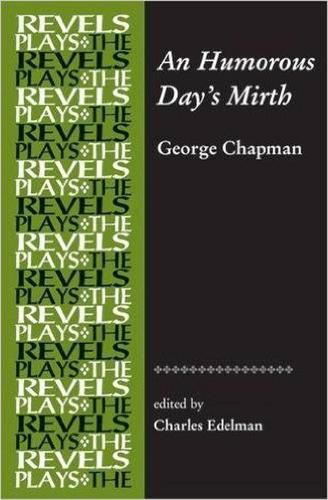Readings Newsletter
Become a Readings Member to make your shopping experience even easier.
Sign in or sign up for free!
You’re not far away from qualifying for FREE standard shipping within Australia
You’ve qualified for FREE standard shipping within Australia
The cart is loading…






George Chapman is known today as a translator of Homer and as the author of dark tragedies such as Bussy D'Ambois. An Humorous Day’s Mirth was one of the most popular plays of the Elizabethan era. Not only was it the Rose Theatre’s greatest box-office success of 1597, it also presented an entirely new type of comedy, one that has profoundly influenced comic writing up to the present day.
This play is the English theatre’s first ‘comedy of humours’, in which the attitudes, behaviour, and social pretensions of contemporary men and women are satirised. Charles Edelman’s is the first fully annotated, modern spelling edition of this long-neglected play. In his extensive introduction and commentary, Edelman discusses the intellectual, philosophical and theatrical background, and shows that the play would delight the readers and audiences of today as much as those in 1597. – .
$9.00 standard shipping within Australia
FREE standard shipping within Australia for orders over $100.00
Express & International shipping calculated at checkout
George Chapman is known today as a translator of Homer and as the author of dark tragedies such as Bussy D'Ambois. An Humorous Day’s Mirth was one of the most popular plays of the Elizabethan era. Not only was it the Rose Theatre’s greatest box-office success of 1597, it also presented an entirely new type of comedy, one that has profoundly influenced comic writing up to the present day.
This play is the English theatre’s first ‘comedy of humours’, in which the attitudes, behaviour, and social pretensions of contemporary men and women are satirised. Charles Edelman’s is the first fully annotated, modern spelling edition of this long-neglected play. In his extensive introduction and commentary, Edelman discusses the intellectual, philosophical and theatrical background, and shows that the play would delight the readers and audiences of today as much as those in 1597. – .